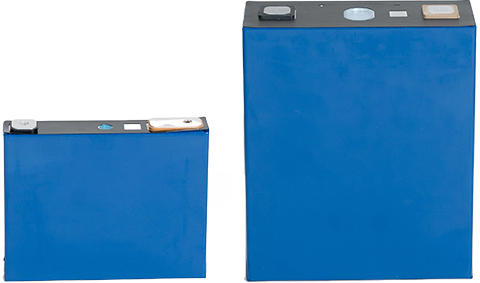Deep cycle lithium marine batteries offer a number of significant features and advantages over other types of batteries. Firstly, deep cycle lithium batteries are known for their high energy density, which means they are capable of storing large amounts of energy in a relatively compact size. This makes them ideal for use in marine batteries, as boats often require large amounts of power to support their long voyages and the operation of various equipment. Secondly, deep cycle lithium batteries are optimized for sustained slow discharge over long periods of time. This means that they can be discharged to a much lower state of charge without negatively affecting their overall lifespan or capacity. In contrast, many other types of batteries can suffer performance degradation or capacity loss when deeply discharged. Additionally, deep cycle lithium batteries use chemistries such as lithium iron phosphate (LiFePO₄) or lithium nickel manganese cobalt oxide (NMC). These chemistries not only offer greater safety, but also have longer lifetimes and better performance under harsh conditions. In contrast, certain other batteries may not perform well in high or low temperatures, or their capacity may gradually decline over the course of long-term use. Further, deep-cycle lithium batteries can withstand deep discharges and withstand a large number of charge and discharge cycles while maintaining their performance and capacity. This is particularly important for marine batteries, as boats may experience frequent charging and discharging processes.

Deep-cycle lithium batteries also offer better environmental performance. They contain no harmful heavy metals and produce relatively little pollution during production and use. This makes them a more environmentally friendly and sustainable energy solution. In summary, deep cycle lithium marine batteries have significant advantages over other types of batteries due to their high energy density, optimized deep cycle performance, long life, high safety and environmental performance. These features make deep-cycle lithium batteries an ideal choice for marine batteries, capable of meeting the power needs of vessels for long-duration navigation and operation of various equipment.
The choice of batteries is crucial in a vessel's power system, especially deep-cycle marine lithium batteries, which play a key role in marine environments due to their special design and performance. The main differences between deep cycle marine lithium batteries and other batteries will be detailed below.
The design concept of deep-cycle marine lithium batteries is long-lasting durability and deep cycling. This means that this type of battery is able to maintain stable performance over long periods of boat operation and has a high efficiency during charging and discharging. In contrast, other types of batteries may be more focused on characteristics such as lightweight or fast charging.
Deep-cycle lithium marine batteries have higher battery capacity and longer cycle life. Their design allows the batteries to maintain high performance even after multiple charges and discharges, making them ideal for boats that operate for long periods of time. In contrast, ordinary batteries may not be able to maintain long-lasting performance during frequent charging and discharging.
The safety of the battery is especially important due to the special working environment of the boat. Deep-cycle marine lithium batteries are designed to be explosion-proof, leak-proof and high-temperature resistant to ensure stable operation in harsh environments. In addition, their stable voltage output also helps protect other electronic equipment on board from voltage fluctuations. Other types of batteries may not be as well protected as deep cycle marine lithium batteries in these aspects.
Deep-cycle marine lithium batteries are designed to take into account the special characteristics of the marine environment, such as salt spray, humidity and temperature changes. These batteries usually have good anti-corrosion and weather resistance and can work stably under various environmental conditions. While other types of batteries may be more sensitive to specific environments.
While the initial cost of deep-cycle marine lithium batteries may be high, their long-term operating and maintenance costs are relatively low. This is largely due to their excellent durability and low maintenance requirements. In contrast, other types of batteries may require more frequent maintenance and replacement, which increases operating costs.
With the development of science and technology, deep-cycle marine lithium batteries are gradually integrated with more intelligent features, such as remote monitoring and automatic diagnosis. These features help to improve the efficiency of battery management and ensure that problems can be detected and dealt with in a timely manner during the operation of the vessel. Other types of batteries may lack these intelligent features.
Overall, there are significant differences between deep-cycle marine lithium batteries and other batteries in terms of design concept, performance, safety, environmental suitability, maintenance costs, and intelligence. These differences make deep-cycle marine lithium batteries an ideal choice for vessel power systems, capable of meeting the long-term operational needs of vessels in a variety of environments.